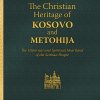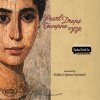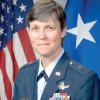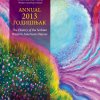The Christian Heritage of Kosovo and Metohija
Published by: Sebastian Press, Los Angeles. Co-publishers: Institute for Balkan Studies, Serbian Academy of Sciences and Arts, Belgrade • The Episcopal Council of the Serbian Orthodox Church in North and South America • Faculty of Orthodox Theology, University of Belgrade • BLAGO Fund • Serbica Americana • Interklima-grafika, Vrnjci
“This book on Serbia’s Christian Heritage in Kosovo and Metohija, its heartland in medieval times and through Ottoman domination, is intended to introduce to a wide reading public the oldest and richest treasury of Serbian medieval history and culture. Its authors are leading specialists in the fields in which they write, so readers may place complete reliance on the factual accuracy of the material.”
“The editor and publisher have the fervent hope that today’s peoples in Kosovo and Metohija will be able to begin their discussions not from what divides them but from what unites them, emphasizing in positive and constructive ways the areas in which a Serbo-Albanian ethnic symbiosis has existed. This book invites all to consider their differences in the light of history and of the future.”
Authors: Gojko Subotić • Alex Dragnich • Slavko Todorovich • Thomas A. Emmert • Sima M. Ćirković • Arthur Evans • G. K. Chesterton • Boško Bojović • Atanasije Jevtić • Alexander F. Hilferding • Rebecca West • Rebecca West • Stamatis Skliris • Dušan T. Bataković • Radovan Samardžić • Dimitrije Djordjević • Dimitrije Bogdanović • Sava Janjić • Andrew Wermuth • F. W. Harvey and others





